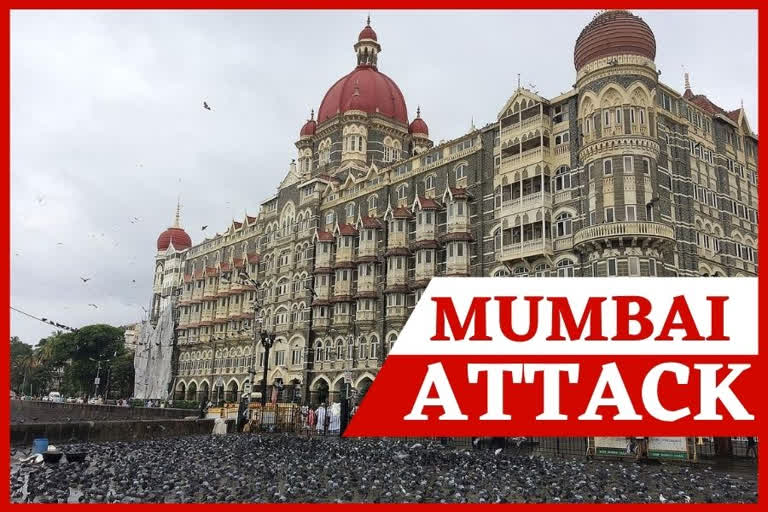Washington: A US court has rejected the USD 1.5 million bail application of Pakistani-origin Canadian businessman Tahawwur Rana, who has been declared a fugitive by India for his involvement in the 2008 Mumbai terror attack case, describing him a flight risk.
Rana, 59, a childhood friend of David Coleman Headley, was re-arrested on June 10 in Los Angeles on an extradition request by India for his involvement in the 2008 Mumbai terror attack in which 166 people, including six Americans, were killed.
He is a declared fugitive in India. US District Court Judge in Los Angeles Jacqueline Chooljian, in her 24-page order dated July 21, denied bail to Rana arguing that he is a flight risk.
Describing Rana as a flight risk, the US government opposed his release on bail, arguing that if he were to flee to Canada, he may escape the possibility of a death sentence in India.
Given the stakes, an allowance of bail in any amount would not guarantee Rana's presence in court. Granting bail would invite the possibility of embarrassing the United States in the conduct of its foreign affairs, straining its relationship with India, Assistant US Attorney John J Lulejian had told the court.
On the other hand, Rana's attorney told the court that the 26/11 accused is not a flight risk and has proposed a USD 1.5 million bond for his release.
Rana, in his defence, has argued that the US' decision not to extradite his co-conspirator, Headley, to India is inconsistent and bars his extradition.
"While Rana has presented a robust bail package and proffered conditions which significantly mitigate the risk of flight, the court cannot find that he has negated the risk of flight and accordingly grants the Detention Request (of the government) on that basis," Judge Chooljian said.
For someone facing conspiracy to murder and murder charges in India, the incentive to flee to avoid extradition is strong, the court said.
Pakistan-born Rana completed Army Medical College there, and served in the Pakistani Army as a doctor for more than a decade, but eventually deserted.
Read more: Pompeo says US to expand Arctic role to deter Russia, China
He is currently a Canadian citizen but was a resident of Chicago where he had a business. According to the court papers, he has also resided in and travelled to Canada, Pakistan, Germany and England and speaks seven languages.
If he flees to Canada, he could effectively avoid exposure to the death penalty as such country's extradition treaty with India contains a provision which allows extradition to be refused if the offence for which extradition is requested is punishable by death in India and is not punishable by death in Canada unless India gives assurances that a death penalty would not be executed, federal prosecutors had said.
There is no question in the court's mind that given Rana's significant foreign ties, particularly to Canada, and the potential death penalty awaiting him in India if he is extradited on and convicted of the most serious pending charges, he is a flight risk, the court said.
According to the court papers, Rana had tested positive for COVID-19 at Terminal Island in Los Angeles on April 28, 2020, but was asymptomatic and has since recovered.
He tested negative in the last three tests on June 13, June 15 and June 25.
According to the federal prosecutors, between 2006 and November 2008, Rana conspired with Headley, also known as Daood Gilani, and others in Pakistan to assist Lashkar-e-Taiba (LeT) and Harakat ul-Jihad-e-Islami, both US-designated terrorist organisations, to plan and carry out the Mumbai terrorist attacks.
Pakistani-American LeT terrorist Headley was involved in plotting the 2008 Mumbai terror attack. He was made an approver in the case and is currently serving a 35-year prison term in the US for his role in the attack.
India seeks his arrest on a number of offences, including the conspiracy to commit murder, conspiracy to commit forgery for the purpose of cheating, and murder under relevant sections of the Indian Penal Code (IPC). He is sought for his role in the 2008 terrorist attacks in Mumbai.
The 2008 Mumbai attack was one of India's most horrific terrorist attacks in which 166 people were killed and over 300 injured as 10 heavily-armed terrorists from Pakistan created mayhem.
Pakistani national Mohammed Ajmal Kasab, the lone terrorist captured alive, was hanged to death on November 21, 2012.
Also read: US asks China to close its Consulate General in Houston in 72 hours
(With inputs from PTI)



